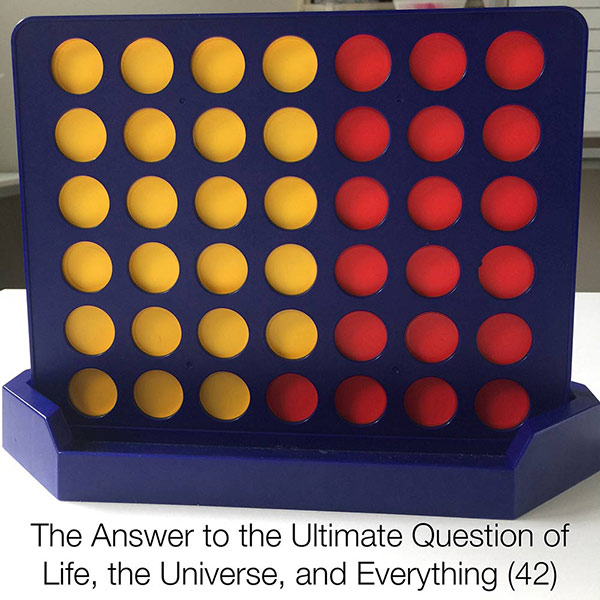excreationist
Married mouth-breather
Bender was a god in that episode. The actual "god" said "being God isn't easy. If you do too much, people get dependent on you. And if you do nothing, they lose hope. You have to use a light touch like a safecracker or a pickpocket" and goes on to explain this third option.... Bender seems to be satisfied with this option. I thought it is a clever option not related to stupidity. Also it seems Matt Groening's agnosticism would be compatible with the quote - rather than just being an attempt at humour....Yeah, that's a joke.In Futurama "God" said twice: "When you do things right, people won't be sure you've done anything at all"
About the stupidity of believing in a God that's undetectable.
I believe in an intelligent force that seems detectable just not provable. Note that in Christianity it says things like not putting God to the test.
I believe in an intelligent force that has a sense of humour. The answer to the ultimate question (42) is also a joke... and it was written by a "radical" atheist. The first time I realised it was connected to the game of Connect 4 I thought I'd look at the pieces:Jokes are quite common in comedies; You should probably be expecting them.

And there were still exactly 42 pieces but two less red pieces and two extra yellow pieces than there should be...
Though a few days ago I eventually was able to explain this - Pressman "4 in a row sets" have 23 pieces of each colour - so that meant that there were 4 missing red pieces.... (but genuine Connect 4 sets only have 21 of each colour). Another interesting thing is that the set was more deluxe than all of the other cheaply made sets I've come across.
At the same mental ward visit I was reading a Bible upside down to try and curse myself then the next day I was given a sealed Bible that was upside down - I also see that as involving a sense of humour:
Note that the 2011 NIV Bible usually puts Jesus' words in red - but not for early John 8:

Bible Gateway passage: John 7 - New International Version
Jesus Goes to the Festival of Tabernacles - After this, Jesus went around in Galilee. He did not want to go about in Judea because the Jewish leaders there were looking for a way to kill him. But when the Jewish Festival of Tabernacles was near, Jesus’ brothers said to him, “Leave Galilee and go...
I don't think the intelligent force generally has a sense of humour in its possible interactions with other people - just that I think it sometimes does when it involves me....[The earliest manuscripts and many other ancient witnesses do not have John 7:53—8:11. A few manuscripts include these verses, wholly or in part, after John 7:36, John 21:25, Luke 21:38 or Luke 24:53.]
Last edited:


